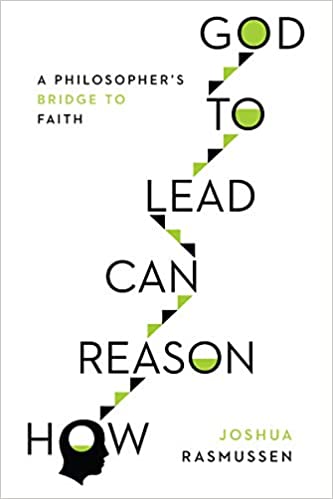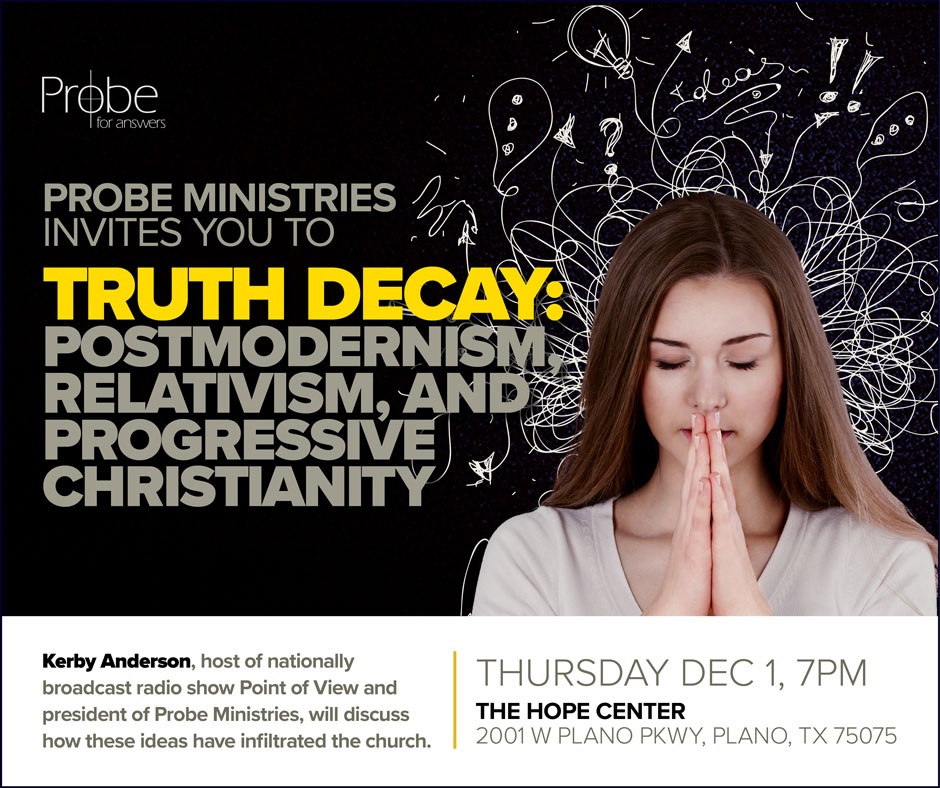Kerby Anderson tries to understand the liberal mind from a biblical perspective. What are the assumptions the liberals make? How do those assumptions square with the Bible?
As we begin this discussion, I want to make a clear distinction between the terms “liberal” and “leftist.” We often use the terms interchangeably but there is an important difference.
Dennis Prager wrote about this and even described those differences in a PragerU video.{1} His argument is that traditional liberalism has far more in common with conservatism than it does with leftism. Here are some examples he uses to make his point.
Liberals and leftists have a different view of race. The traditional liberal position on race is that the color of one’s skin is insignificant. By contrast, leftists argue that the notion that race is insignificant is itself racist. Liberals were committed to racial integration and would have rejected the idea of separate black dormitories and separate black graduations on university campuses.
Nationalism is another difference. Dennis Prager says that liberals always deeply believed in the nation-state. Leftists, on the other hand, oppose nationalism and promote class solidarity.
Superman comics illustrate the point. When the writers of Superman were liberal, Superman was not only an American but also one who fought for “Truth, justice, and the American way.” The left-wing writers of Superman comics had Superman announce a few years ago that he was going to speak before the United Nations and inform them that he was renouncing his American citizenship.
Perhaps the best example is free speech. American liberals agree with the statement: “I disapprove of what you say, but I will defend your right to say it.” Leftists today are leading a nationwide suppression of free speech everywhere from the college campuses to the Big Tech companies.
Capitalism and the free enterprise system would be yet another example. Dennis Prager says, “Liberals have always been pro capitalism,” though they often wanted government “to play a bigger role” in the economy. Leftists oppose capitalism and are eagerly promoting socialism.
Liberals have had a love of Western civilization and taught it at most universities. They were promoters of the liberal arts and fine arts. In fact, one of the most revered liberals in American history was President Franklin Roosevelt who talked about the need to protect Western Civilization and even Christian civilization.
Today Western Civilization classes are rarely if ever taught in the university. That’s because leftists don’t believe Western Civilization is superior to any other civilization. Leftists label people who attempt to defend western values as racist and accuse them of promoting white supremacy. And attempts to promote religious liberty are dismissed as thinly disguised attacks on the LGBT community.
In conclusion, liberals and leftists are very different.
Ethics and a Belief in Right and Wrong
The philosophical foundation for most liberal perspectives is secularism. If you don’t believe in God and the Bible, then you certainly don’t believe in biblical absolutes or even moral absolutes. Dostoyevsky put it this way: “If God is dead, then everything is permitted.”
Even atheists admit that a view of God affects human behavior. Richard Dawkins recently expressed his fear that the removal of religion would be a bad idea for society because it would give people “license to do really bad things.”
He likens the idea of God to surveillance, or as he puts it, the “divine spy camera in the sky.”{2} People generally tend to do the right thing when someone is watching them. They tend to do bad things when no one is watching. He goes go on to add that the “Great Spy Camera theory” isn’t a good reason for him to believe in God.
It is also worth mentioning that more and more young people aren’t making decisions about right and wrong based on logic but instead based on feelings. I began to notice this decades ago. College students making a statement or challenging a conclusion used to say “I think” as they started a sentence.” Then I started to see more and more of them say “I feel” at the
start of a sentence. They wouldn’t use reason to discuss an issue. Instead, they would use emotion and talk about how they felt about a particular issue.
The liberal mind also has a very different foundation for discussing right and wrong. Dennis Prager recently admitted that he had been wrong. All of his life, he has said that the left’s moral compass is broken. But he has concluded that “in order to have a broken moral compass, you need to have a moral compass to begin with. But the left doesn’t have one.”{3}
He doesn’t mean that conclusion as an attack. It is merely an observation that the left doesn’t really think in terms of good and evil. We assume that other people think that way because we think that way. But that is not how most of the people on the left perceive the world.
Karl Marx is a good example. He divided the world by economic class (the worker and the owner). One group was exploiting the other group. Good and evil aren’t really relevant when you are thinking in terms of class struggle. Friedrich Nietzsche, for example, operated “beyond good and evil.”
To the Marxists, “there is no such thing as a universal good or universal evil.” Those of us who perceive the world from a Judeo-Christian worldview see ethics as relevant to the moral standard, not the person or their social status.
A biblical view of ethics and morality begins with the reality that God exists and that He has revealed to us moral principles we are to apply to our lives and society. Those absolute moral principles are tied to God’s character and thus unchanging.
A Naïve View of Human Nature
In this article we are talking about the liberal mind, while often making a distinction between liberals and the left. When it comes to the proper view of human nature, both groups have a naïve and inaccurate view.
You can discover this for yourself by asking a simple question: Do you believe people are basically good? You will get an affirmative answer from most people in America because we live in a civilized society. We don’t have to deal with the level of corruption or terror that is a daily life in so many other countries in the world.
But if you press the question, you will begin to see how liberals have difficulty explaining the holocaust and Muslim terrorism. Because the liberal mind starts with the assumption that people are basically good. After all, that is what so many secular philosophers and psychologists have been saying for centuries. Two world wars and other wars during the 20th century should have caused most people to reject the idea that people are basically good.
The Bible teaches just the opposite. Romans 3:23 reminds us that “all have sinned and fall short of the glory of God.” Jeremiah 17:9 says, “The heart is deceitful above all things, and desperately sick; who can understand it?” This statement about the deceitfulness of our heart may seem extreme until we realize that Jesus also taught that “out of the heart come evil thoughts, murder, adultery, sexual immorality, theft, false witness, slander” (Matthew 15:19).
This naïve view of human nature should concern all of us. Young people, two generations after Auschwitz, believe people are basically good. One reason is biblical illiteracy. Another reason is historical illiteracy. A recent survey found two thirds of young people did not know six million died in the Holocaust and nearly half could not name one of the Nazi death camps.{4}
This naïve view of human nature may also explain another phenomenon we have discussed before. One of the untruths described in the book, The Coddling of the American Mind, is the belief that the battle for truth is “us versus them.”{5} If you think that people are basically good and you have to confront someone who disagrees with you, then they must be a bad person. They aren’t just wrong. They are evil.
Tribalism has been with us for centuries. That is nothing new about people joining and defending a tribe. But that has become more intense because of the rhetoric on university campuses and the comments spreading through social media. We don’t have to live this way, but the forces in society are making the divisions in society worse by the day.
A biblical perspective starts with the teaching that all are created in God’s image (Genesis 1:27) and thus have value and dignity. But all of us have a sin nature (Romans 5:12). We should interact with others who disagree with us with humility (Ephesians 4:2) and grace (Colossians 4:6).
Big Government
We will now look at why liberals and the left promote big government. The simple answer relates to our discussion above about human nature. If you believe that people are basically good, then it is easy to assume that political leaders and bureaucrats will want to do the best for the citizens.
Christians agree that government is necessary and that it is one of the institutions ordained by God (Romans 13:1-7). There is a role for government to set the rules of governing and to resolve internal disputes through a legal system. Government is not God. But for people who don’t believe in God, then the state often becomes God.
Friedrich Hayek wrote about this drive toward big government and the bureaucratic state in his classic book, The Road to Serfdom. He argued in his book that “the most important change which extensive government control produces is a psychological change, an alteration in the character of the people.”{6}
The character of citizens is changed because they yield their will and decision-making to a more powerful government. They may have done so willingly in order to have a welfare state. Or they may have done so unwillingly because a dictator has taken control of the reins of power. Either way, Hayek argues, their character has been altered because the control over every detail of economic life is ultimately control of life itself.
Friedrich Hayek wrote The Road to Serfdom to warn us that sometimes the road can be paved with good intentions. Most government officials and bureaucrats write laws, rules, and regulations with every good intention. They desire to make the world a better place by preventing catastrophe and by encouraging positive actions from their citizens. But in their desire to control and direct every aspect of life, they take us down the road to serfdom.
He argued that people who enter into government and run powerful bureaucracies are often people who enjoy running not only the bureaucracy but also the lives of its citizens. In making uniform rules from a distance, they deprive the local communities of the freedom to apply their own knowledge and wisdom to their unique situations. A government seeking to be a benevolent god, usually morphs into a malevolent tyrant.
The liberal mind is all too willing to allow political leaders and bureaucrats to make decisions for the public. But that willingness is based on two flawed assumptions. First, human beings are not God and thus government leaders will certainly make flawed decisions that negatively affect the affairs of its citizens. Second, liberals do not believe we have a sin
nature (Romans 3:23), and that includes government leaders. Even the best of them will not always be wise, compassionate, and altruistic. This is why the founders of this country established checks and balances in government to limit the impact of sinful behavior.
Tolerance?
If there is one attitude that you would think would be synonymous with the liberal mind, it would be tolerance. That may have been true in the past. Liberalism championed the idea of free thought and free speech. That is no longer the case.
Liberals have been developing a zero-tolerance culture. In some ways, that has been a positive change. We no longer tolerate racism. We no longer tolerate sexism. Certain statements, certain jokes, and certain attitudes have been deemed off-limits.
The problem is that the politically correct culture of the left moved the lines quickly to begin to attack just about any view or value contrary to the liberal mind. Stray at all from the accepted limits of leftist thinking and you will earn labels like racist, sexist, homophobic, xenophobic.
Quickly the zero-tolerance culture became the cancel culture. It is not enough to merely label an opponent with a smear, the left demands that an “enemy” lose their social standing and even their job and livelihood for deviating from what is acceptable thought. A mendacious social media mob will make sure that you pay a heavy penalty for contradicting the fundamental truths of the liberal mind.
One phenomenon that promotes this intolerance is the use of smears and negative labels. For example, patriotism and pride in your country is called xenophobia. Acknowledging the innate differences between males and females is labelled sexist. Promoting the idea that we are all of one race (the human race) and that all lives matter is called racist. Questioning whether we should redefine traditional marriage is deemed homophobic. Arguing that very young children should not undergo sex assignment surgery is called transphobia. Pointing out that most terrorist attacks come from Muslim terrorists is labelled Islamophobic.
Should Christians be tolerant? The answer is yes, we should be tolerant, but that word has been redefined in society to argue that we should accept every person’s behavior. The Bible does not permit that. That is why I like to use the word civility. Essentially, that is the Golden Rule: “Do to others whatever you would have them do to you” (Matthew 7:12).
Civility requires humility. A civil person acknowledges that he or she does not possess all wisdom and knowledge. That means we should listen to others and consider the possibility that they might be right, and we could be wrong. Philippians 2:3 says, “Do nothing from selfishness or empty conceit, but with humility of mind let each of you regard one another as more important than himself.” We can disagree with other without being disagreeable. Proverbs 15:1 reminds us that “A gentle answer turns away wrath.”
This is an important principle as we try to understand the liberal mind and work to build bridges to others in our society.
Notes
1. Dennis Prager, Left or Liberal?, https://www.prageru.com/video/left-or-liberal/.
2. David Sanderson, “Ending religion is a bad idea, says Richard Dawkins,” The Times, October 5, 2019, www.thetimes.co.uk/article/ending-religion-is-a-bad-idea-says-richard-dawkins-sqqdbmcpq
3. Dennis Prager, “The Left’s Moral Compass Isn’t Broken,” September 15, 2020, townhall.com/columnists/dennisprager/2020/09/15/the-lefts-moral-compass-isnt-broken-n2576225.
4. Ryan Miller, “Almost two-thirds of millennials, Gen Z don’t know that 6 million Jews were killed in the Holocaust, survey finds,” USA Today, September 16, 2020, www.usatoday.com/story/news/nation/2020/09/16/holocaust-history-millennials-gen-z-cant-name-concentration-camps/5792448002/.
5. Jonathan Haidt and Greg Lukianoff, et al., The Coddling of the American Mind: How
Good Intentions and Bad Ideas Are Setting Up a Generation for Failure. New York City: Penguin Press, 2018, probe.org/coddling-of-the-american-mind/.
6. F.A. Hayek, The Road to Serfdom: Text and Documents, the Definitive Edition, ed. Bruce Caldwell (Chicago: University of Chicago Press, 2007), 48.
©2020 Probe Ministries




